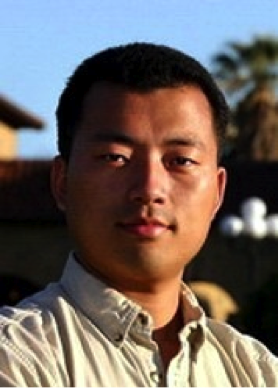
Date:
Location:
Title:
abstract
The electronic structure of matter is critical information that determine its electric, magnetic and optical properties. The precise understanding of such information will not only help understand the rich properties and physical phenomena of quantum materials, but also guide the design of their potential applications.
Angle-resolved photoemission spectroscopy (ARPES) is an effective method in determining the electronic structures of materials: with its energy and momentum resolution, ARPES can directly map out dispersions of electronic bands in the reciprocal space with critical parameters (such as the energy gap and width of bands, carrier type, density and the Fermi-velocity, etc.).
In this talk, I will first give a brief introduction to this powerful experimental technique, its basic principle and the rich information it can yield, then focus on its recent application to topological quantum materials (including some of our works on topological insulators, Dirac and Weyl semimetals [1]). Finally, I will review the recent development in ARPES and give a perspective on its future directions and applications.
[1] Science, 325, 178 (2009), Science, 329, 659 (2010), Nature Nanotechnology, 6, 705 (2011), Nature Chemistry, 4, 281 (2012), Nature Physics, 9, 704 (2013), Science, 343, 864 (2014), Nature Materials, 13, 677 (2014), Nature Physics, 11, 728 (2015), Nature Materials, 15, 27(2016), Nature Communications 7, 12924 (2016), Nature Communications, 8, 13973 (2017).
Bio
Yulin received his B.S. from the University of Science & Technology of China in 2000 and Ph.D. in Physics from Stanford University in 2008. After a year of postdoctoral research (2008-2009) at SLAC National Accelerator Laboratory, he became an associate staff scientist (2009-2010), then a staff scientist (2010-2011) there. He jointed the University of Oxford in 2012 as a University Lecturer and Fellow of the Jesus College, then as an associate professor since 2014. Yulin is also an adjunct professor in Tsinghua University and a distinguished adjust professor in ShanghaiTech University since 2014. Yulin’s research interest lies in understanding the behavior of electrons in unconventional materials, including topological quantum materials, strongly correlated electron systems and functional materials. Yulin is also devoted in developing advanced instrumentation with new capability to drive the current research frontier. Due to his contribution to the field of topological quantum materials, he was awarded the William E. and Diane M. Spicer Young Investigator Award (2009) and OCPA Outstanding Young Research Award (2012).
Hosted by Susanne Stemmer. Download event flyer.



